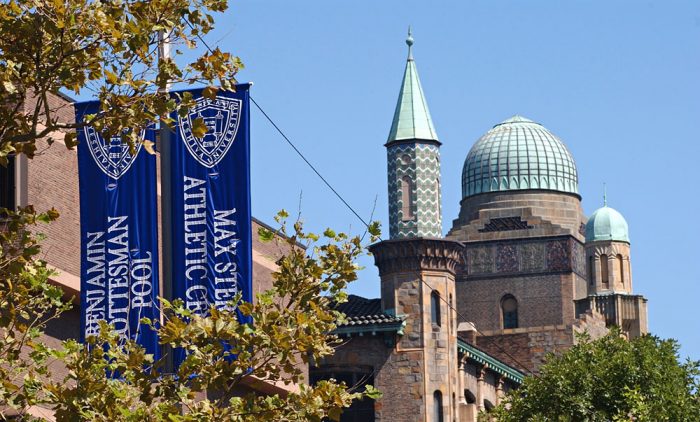Summer winds down as we look at the start of a new term. Jeffrey Minear, a top aide to Chief Justice Roberts for 16 years, will step down at the end of the month. To quote the SCOTUSBlog entry:
Much like a chief of staff, the counselor to the chief justice is a vaguely defined position with broad responsibilities, including helping the chief oversee the Judicial Conference of the United States and serving as the chief’s representative to other branches of government, foreign courts, and visiting dignitaries. Minear also managed the court’s budget and worked to revitalize the Supreme Court Fellows program. Outside the court, he served as Roberts’ representative as chancellor of the Smithsonian Institution.
He had received some kudos, well deserved looking at his resume at that article. That was noted as a press release at the SCOTUS website.
====
The last summer order list (9/9) was like the others not too surprising. Some pro se criminal defendant failed with a petition to Alito and tried again with Jackson (who has yet to get a circuit), who passed it to the full Court. Who, of course, rejected it. The most notable thing is the allotment of oral argument time for two arguments, one out of California regarding a California law regulating sale of pork, and the affirmative action cases.
For instance, the pork case:
The motion of The Humane Society of the United States, et al. for leave to file respondents' brief on the merits out of time is granted. The motion of The Humane Society of the United States, et al. for divided argument is granted.
The Humane Society is interesting since the U.S. from what I can tell agree with the challengers that the law is a violation of the Commerce Clause for interfering with national commerce. And, this provides a chance to hear more about the arguments the law is valid as a means to advance good treatment of animals. Also, one of the affirmative action cases:
The motion of the student respondents for divided argument and for enlargement of time for oral argument is granted. The motion of the Solicitor General for leave to participate in oral argument as amicus curiae, for divided argument, and for enlargement of time for oral argument is granted, and the time is divided as follows: 45 minutes for petitioner, 20 minutes for the university respondents, 10 minutes for the student respondents, and 15 minutes for the Solicitor General.
The other case (the one Jackson won't be involved in) also involved students trying to get involved, but this time their request was denied. Of course, we aren't told why such decisions are being made. I am less concerned about that sort of thing as compared to the reasoning for some major order or death penalty request.
===
Gorsuch at a 10th Cir. event (he's the circuit judge) noted that the leaking of the Dobbs opinion investigation is still going on, and a report will be released on it (at least internally).
There is already a Justice Sonia Sotomayor Community Center and Sotomayor Houses. The latest is a statue at the Bronx Terminal Market. Sotomayor is a big one to educate the public, probably part of why she was picked (including as a Latina). She has included in this some local attention===
Sotomayor dropped a brief order, the first stand alone order found on the Order Page (some actions are not found there) in a month, in a pending case that has received some attention. This includes from Steve Vladeck, whose shadow docket book is now available for pre-order.Upon consideration of the application of counsel for the applicants and
the response and reply field thereto, it is ordered that the injunction
of the New York trial court, case No. 154010/2021, is hereby stayed
pending further order of Justice Sotomayor or of the Court.
Amy Howe on Twitter briefly translates:
Justice Sonia Sotomayor has put on hold a NY state trial court's order that would require Yeshiva University to recognize an LGBTQ student group. In a brief order, Sotomayor stays the lower court's order "pending further order of the undersigned or of the Court."
(She expanded it for her full discussion which is at her blog and at SCOTUSBlog, where the photo is also posted.)
What this actually means is another matter. The case -- as noted by the group challenging the request -- is in its early stages. There is no compelling reason AT ALL for the Supreme Court to use (to use the jargon) its "rocket docket" here. The case itself is not a major one (the group can still meet on campus and the like as I understand it; it's a limited benefit) as such. The principle at stake might be.
OTOH, the Court majority simply put selectively favors its own view of free exercise [a comparable argument made by the university can be made by a secular one too on academic freedom or free speech grounds, but here it has a religious character]. EVEN THERE, this is a bit much.
This is not to say that the full Court will actually "go there." Looking at a few "legal nerds" on Twitter, the general assumption is that at least someone (more likely more than one) is likely to support Yeshiva here. The question then will be if the whole Court will (likely with dissent) do so.
The order is basically a holding action.
We can only guess at why it was dropped now. Some did. Which is okay. But, that's all it is. All I'll say is that the special attention given to this case (it isn't a death penalty case or something; so why is it so time sensitive?) sends a message of endorsement of religion. But, the Supreme Court these days does not really find that problematic.
So we wait.



No comments:
Post a Comment
Thanks for your .02!